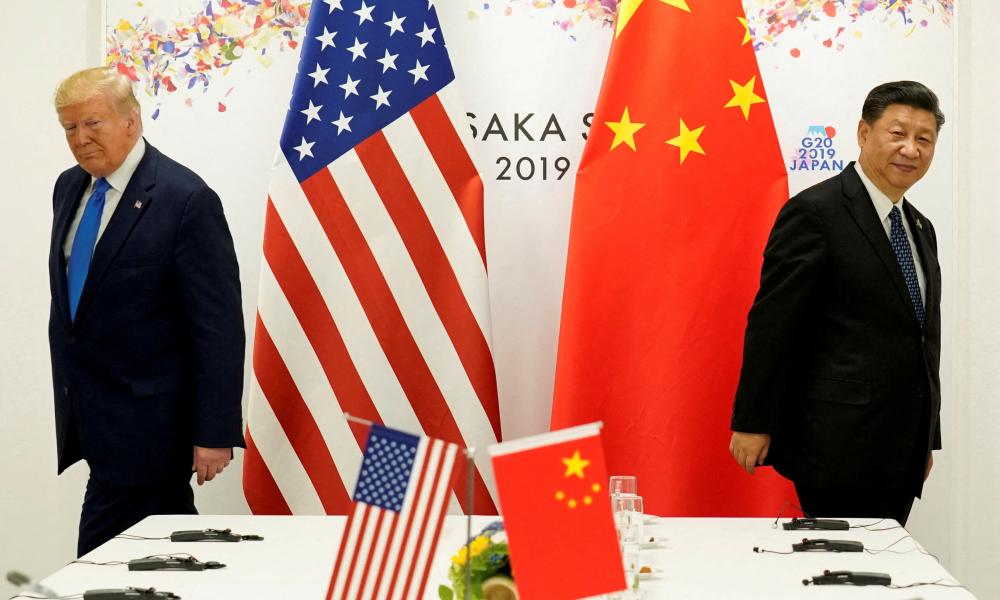In a move that sent ripples through the global shipping industry, the United States Postal Service (USPS) temporarily halted the arrival of packages from China and Hong Kong earlier this week. The suspension, which began on Tuesday, was met with swift criticism from Beijing, who accused the USPS of "unreasonable suppression." However, by Wednesday, the service had resumed normal operations, leaving many to wonder about the underlying reasons and implications of this brief but significant disruption.
The Incident: What Happened?
On Tuesday, the USPS announced that it would be suspending the acceptance of incoming parcels from China and Hong Kong. This decision was reportedly made in response to what the USPS deemed as "unreasonable" practices by Chinese authorities. The specifics of these practices were not immediately clear, but it is believed that they relate to issues such as customs clearance, shipping costs, and potentially even security concerns.
The suspension was short-lived, as by Wednesday, the USPS had reversed its decision and resumed accepting packages from both China and Hong Kong. Despite the brief nature of the suspension, the move was enough to cause concern among businesses and consumers who rely heavily on international shipping.
Beijing's Response: Accusations of "Unreasonable Suppression"
The Chinese government was quick to respond to the USPS's decision, labeling it as "unreasonable suppression." Beijing officials expressed their dissatisfaction, suggesting that the move was unjust and could have negative implications for the already strained trade relations between the two countries. The Chinese government has long been sensitive to any actions that could be perceived as targeting Chinese businesses or restricting trade, and this incident was no exception.
China's reaction highlights the delicate nature of international trade relations, particularly between two of the world's largest economies. Any disruption, no matter how brief, has the potential to escalate tensions and draw attention from both governments and the global business community.
Implications for Businesses and Consumers
The Immediate Impact
For businesses that rely on importing goods from China and Hong Kong, the suspension, even though brief, could have caused significant disruptions. Many companies, especially those in the e-commerce sector, have come to depend on the efficient and cost-effective shipping options provided by the USPS for their international shipments.
Consumers who were expecting deliveries from China and Hong Kong during this period may have experienced delays. While the suspension was short-lived, it serves as a reminder of the vulnerabilities inherent in the global supply chain and the potential for unexpected disruptions.
The Broader Picture
This incident underscores the broader challenges faced by businesses engaged in international trade. From fluctuating shipping costs to changing regulatory environments, companies must navigate a complex landscape to ensure that their goods reach their destinations efficiently and cost-effectively.
Moreover, the suspension highlights the importance of diversification in shipping routes and carriers. Businesses that rely too heavily on a single carrier or region may find themselves particularly vulnerable to disruptions. This incident serves as a wake-up call for companies to explore alternative shipping options and strategies to mitigate the risks associated with international trade.
Trade Tensions Between the US and China
The USPS's decision to suspend packages from China and Hong Kong must be viewed within the context of the broader trade tensions between the US and China. Over the past few years, the two countries have been engaged in a trade war that has seen tariffs imposed on billions of dollars' worth of goods, as well as restrictions on trade in certain sectors.
While the trade war has had significant implications for businesses and consumers alike, it has also created an environment in which even seemingly minor decisions, such as the temporary suspension of postal services, can take on greater significance. The incident serves as a reminder of the ongoing tensions and the potential for further disruptions in the future.
The Future of International Shipping
As the global economy continues to evolve, the importance of efficient and reliable international shipping will only grow. However, incidents like the brief suspension of packages from China and Hong Kong by the USPS highlight the challenges that lie ahead.
For businesses, the key will be to develop strategies that allow them to navigate these challenges effectively. This may involve diversifying shipping routes, exploring alternative carriers, and staying informed about changes in trade policies and regulations. By taking a proactive approach, companies can minimize the impact of disruptions and ensure that their operations remain as smooth as possible.
For consumers, the incident serves as a reminder of the complexities involved in international shipping. While the suspension was brief, it underscores the importance of being informed about the potential risks and delays that can arise when ordering goods from overseas. By understanding these factors, consumers can make more informed decisions and better manage their expectations when it comes to receiving their purchases.
Conclusion
The temporary suspension of packages from China and Hong Kong by the US Postal Service may have been brief, but it has significant implications for businesses and consumers alike. The incident highlights the delicate nature of international trade relations and the potential for disruptions in the global supply chain.
As the global economy continues to evolve, it is crucial for businesses to develop strategies that allow them to navigate the challenges of international shipping effectively. Whether through diversifying shipping routes, exploring alternative carriers, or staying informed about changes in trade policies, companies must be proactive in order to minimize the impact of disruptions and ensure that their operations remain as smooth as possible.
For consumers, the incident serves as a reminder of the complexities involved in international shipping. By staying informed and understanding the potential risks and delays, consumers can make more informed decisions and better manage their expectations when ordering goods from overseas.
Ultimately, the suspension of packages from China and Hong Kong by the USPS serves as a wake-up call for all stakeholders involved in international trade. It underscores the importance of being prepared for unexpected disruptions and highlights the need for ongoing vigilance in an ever-changing global economy.











